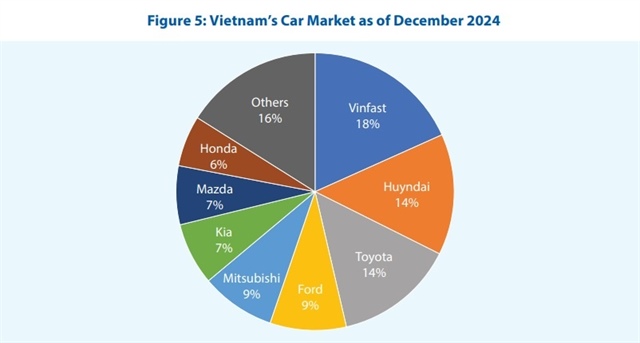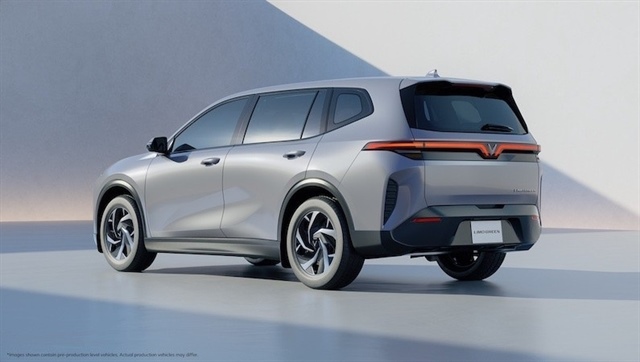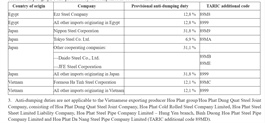VinFast, Hyundai, and Toyota account for 46 per cent of Vietnam’s car market
VinFast, Hyundai, and Toyota account for 46 per cent of Vietnam’s car market
VinFast, Hyundai, and Toyota were the leading car manufacturers in Vietnam in 2024 with a combined market share of 46 per cent, according to the European Chamber of Commerce.
|
The Whitebook features in-depth policy recommendations from 19 sector committees, including automotive, where VinFast, Hyundai, and Toyota account 18, 14, and 14 per cent respectively.
The luxury/premium segment represents a relatively small share of the overall market. At the end of last year, the premium segment made up approximately 6 per cent of Vietnam’s total car market. European brands, including Mercedes, BMW, Audi, and Porsche, held a market share of around 3 per cent, with approximately 8,000 new vehicle registrations.
The Whitebook also highlighted that Vietnam’s automobile market grew by 12.6 per cent, selling over 340,000 vehicles in 2024, marking a recovery after a 25 per cent decline to around 302,000 vehicles in 2023. Despite economic challenges both domestically and internationally, this result signals market positivity and an increasing consumer demand. However, Vietnam’s market size still lags significantly behind other ASEAN countries such as Indonesia, Malaysia, Thailand, and the Philippines.
To stimulate local sales, the government introduced a temporary 50 per cent registration fee reduction for completely knocked down vehicles, effective from September 2024 to November 2024. However, this measure excluded imported completely built up vehicles, which face similar obstacles, including reduced consumer demand, oversupply, and limited access to credit, raising concerns among some in the industry about fairness in how support mechanisms are applied.
|
The government has also implemented policies to encourage the use of electric vehicles (EVs). Decree 104 waives registration fees for EVs through 2025, followed by a 50 per cent reduction for the next two years, aiming to make environmentally friendly vehicles more accessible.
Additionally, the special consumption tax for EVs was reduced to 3 per cent in 2022, lasting until 2027, with plans to increase it to 11 per cent after that, although some industry experts believe extending this reduction could further encourage the shift to EVs.
Vietnam’s commitment to net-zero greenhouse gas emissions by 2050 includes ambitious goals for the automotive industry, such as full electrification or the use of green-energy vehicles by 2050. From 2030 onwards, at least half of all urban transport vehicles will be using green energy or electricity, and all new taxis are to be electric or green energy by 2030. These targets underscore the automotive sector’s critical role in Vietnam’s environmental strategy, aligning with global trends towards sustainability and reduced emissions.
- 10:14 17/04/2025






























